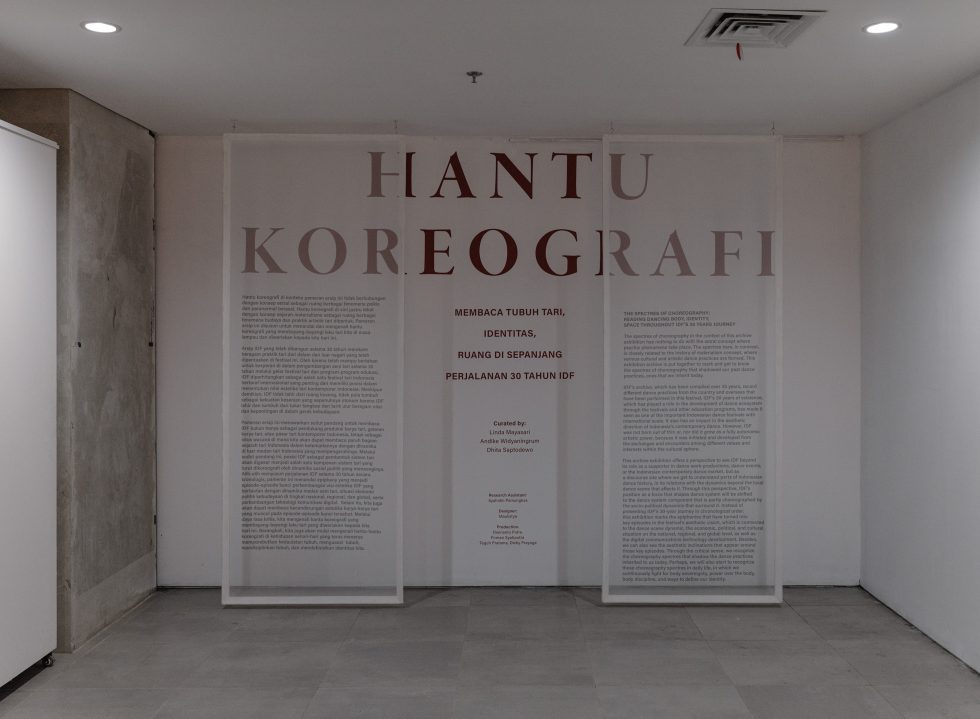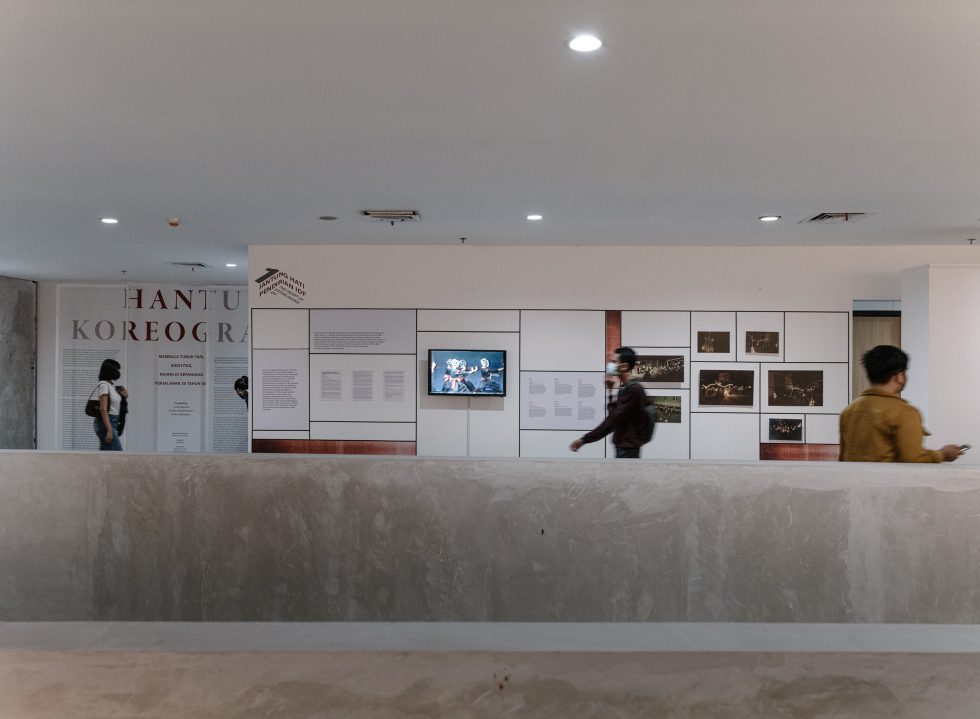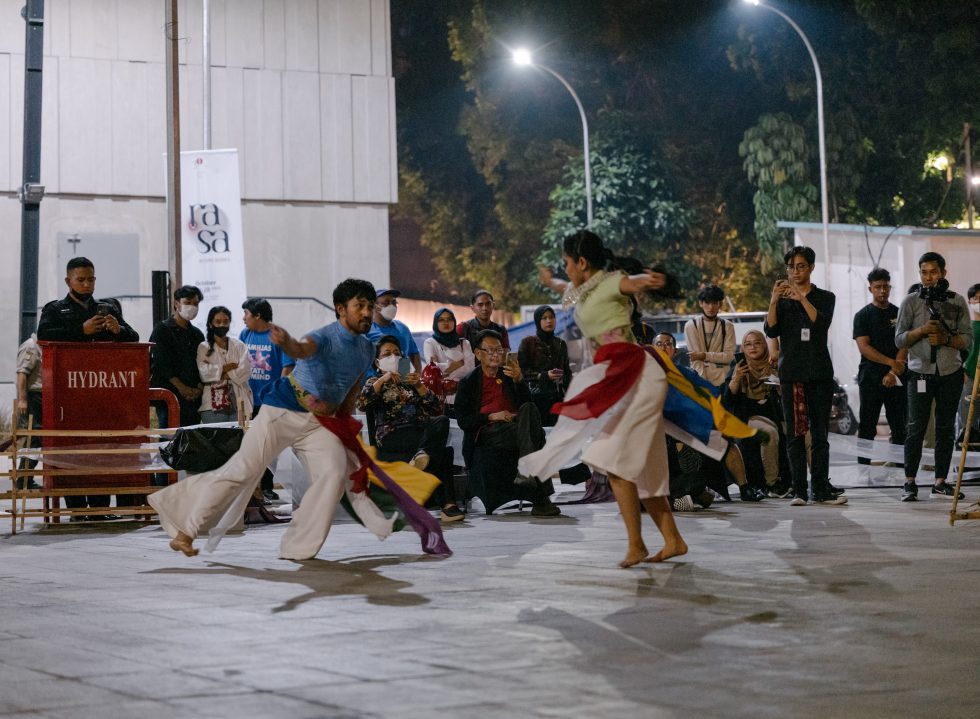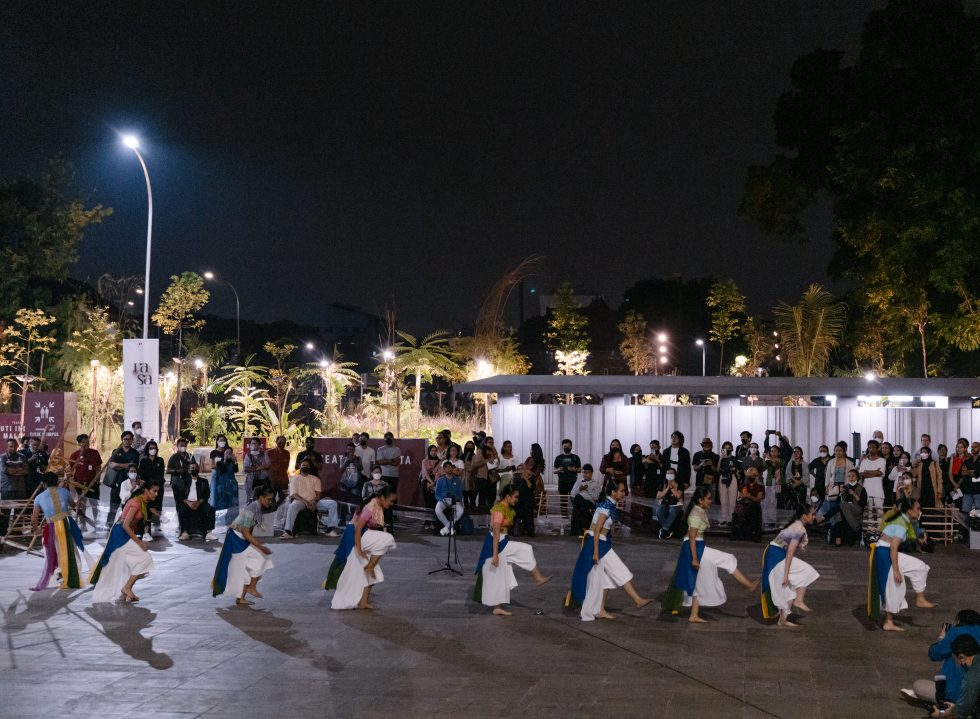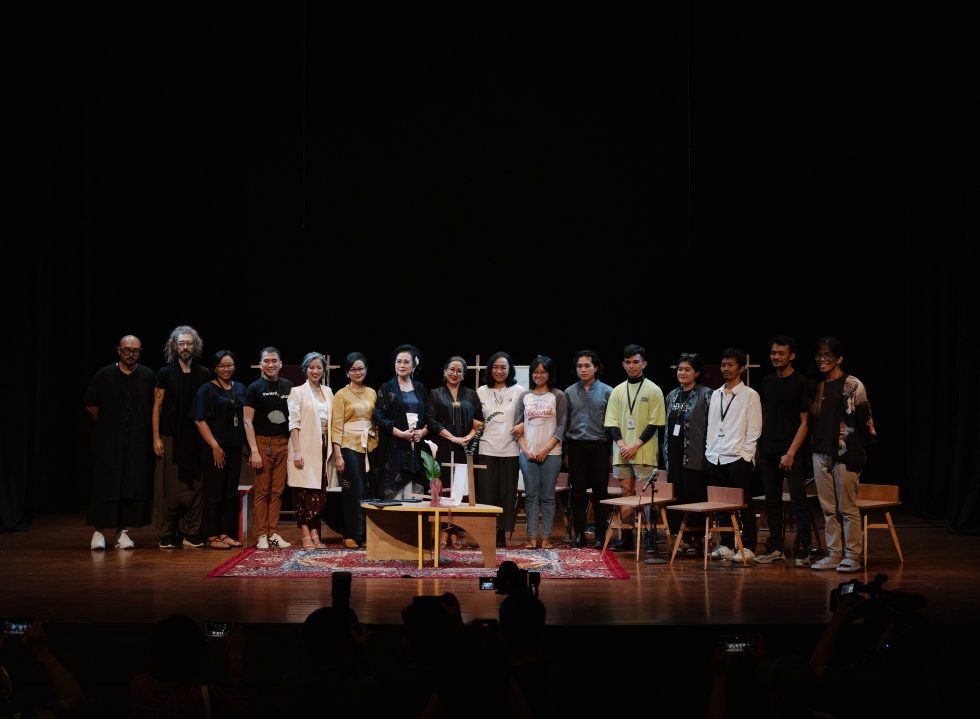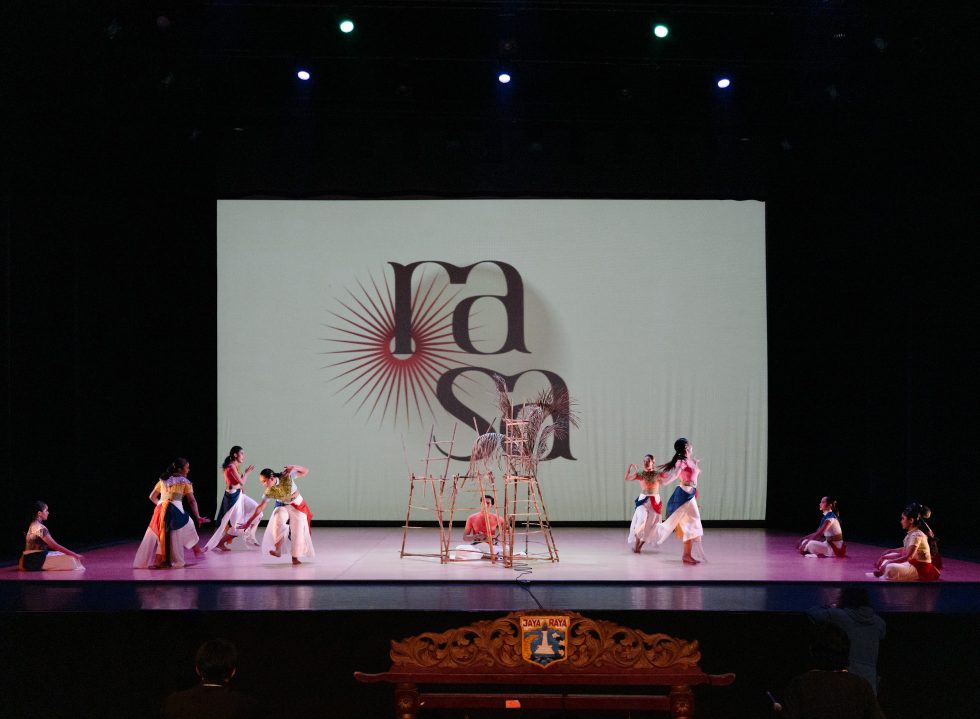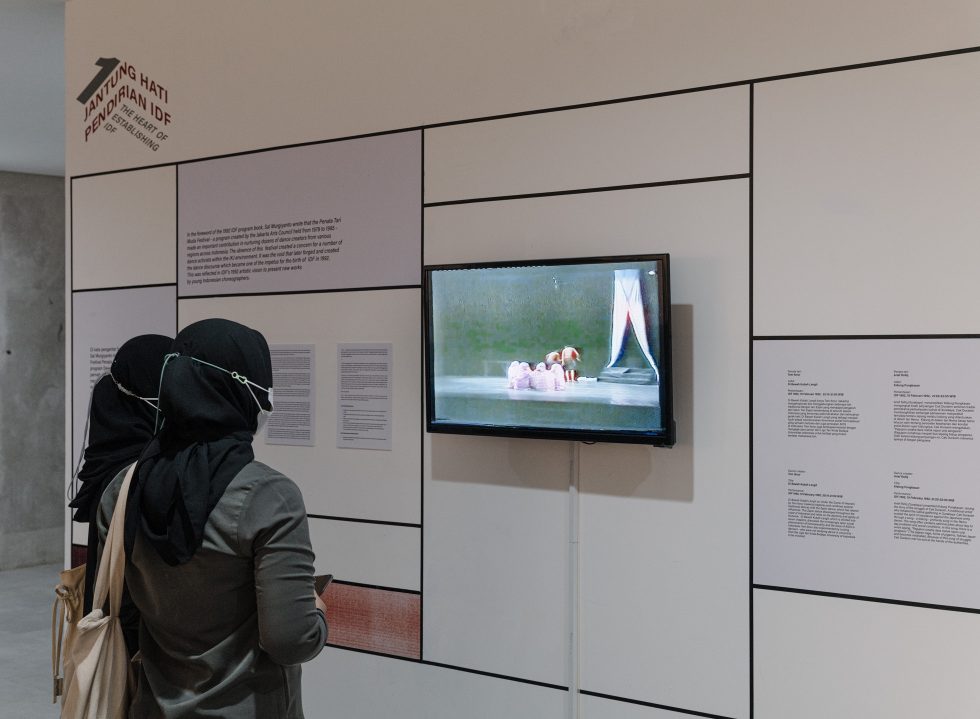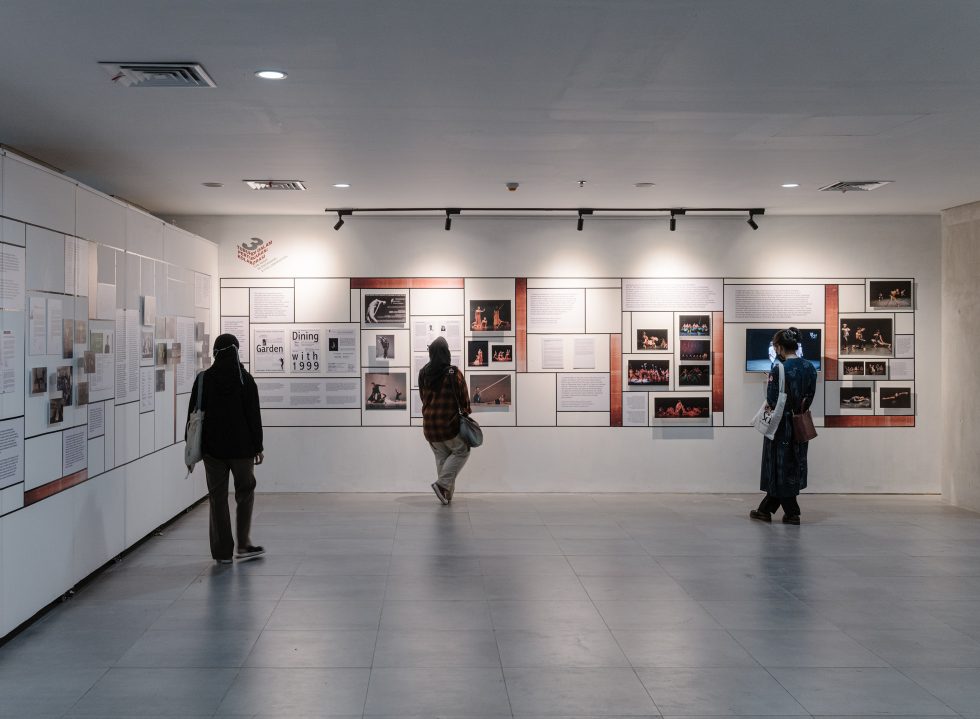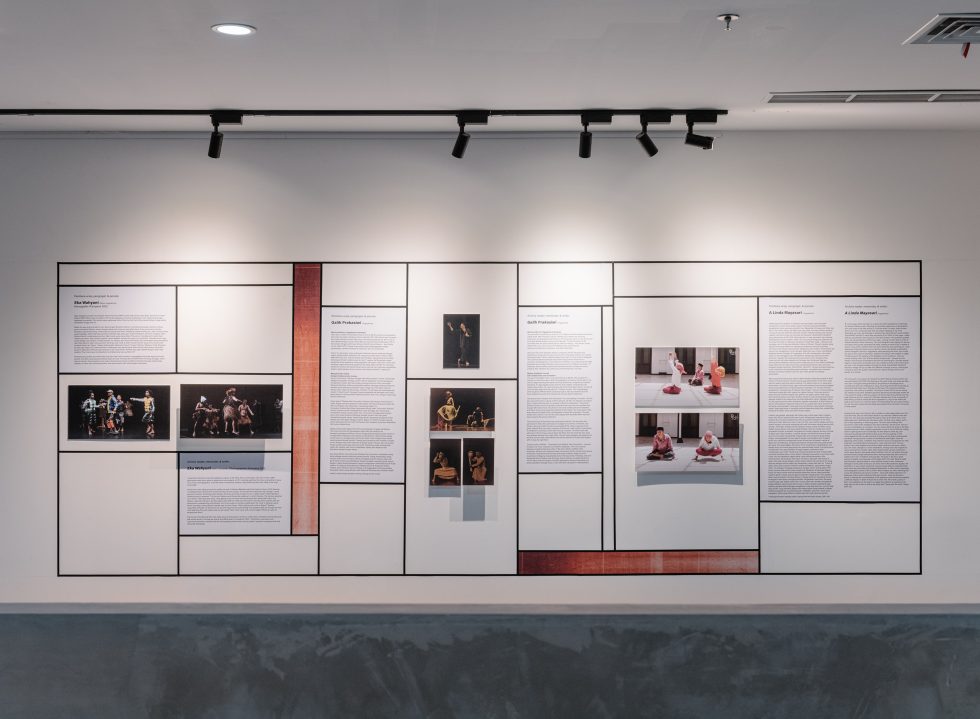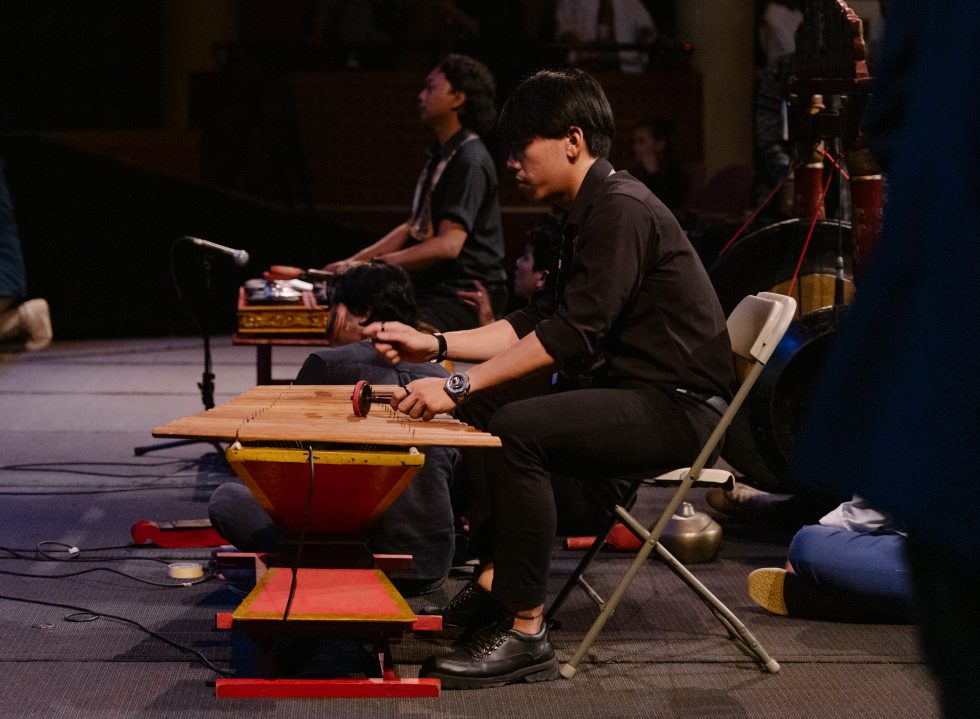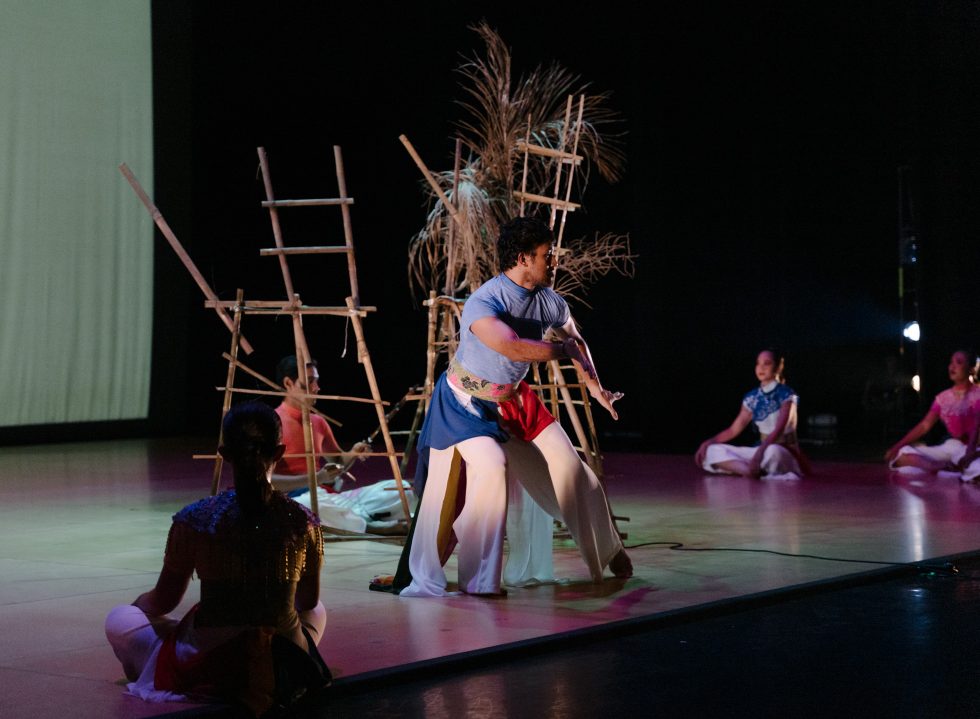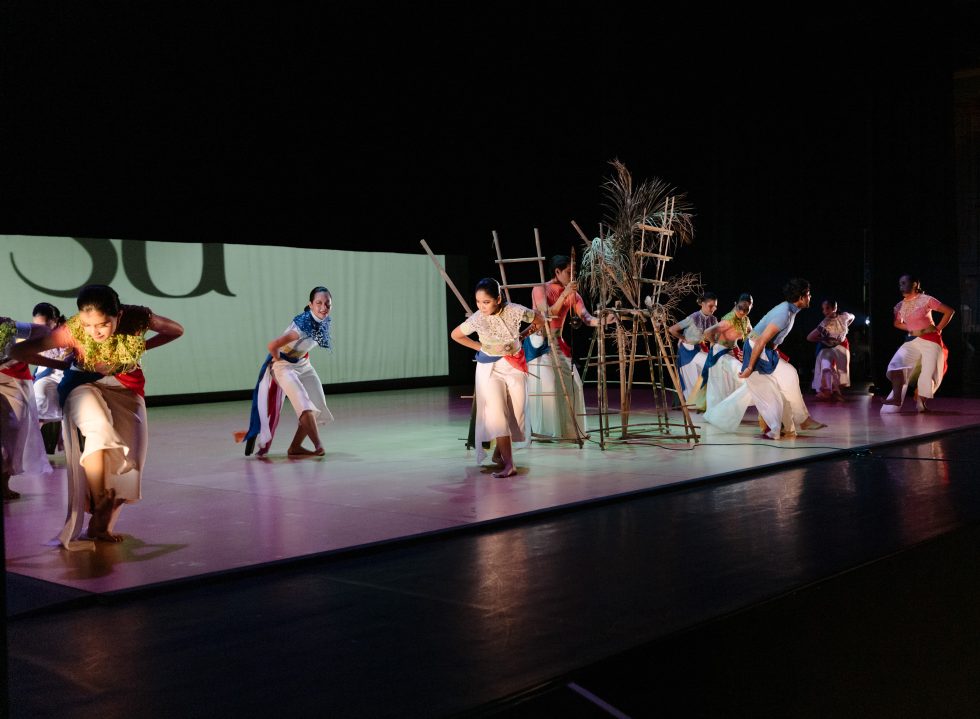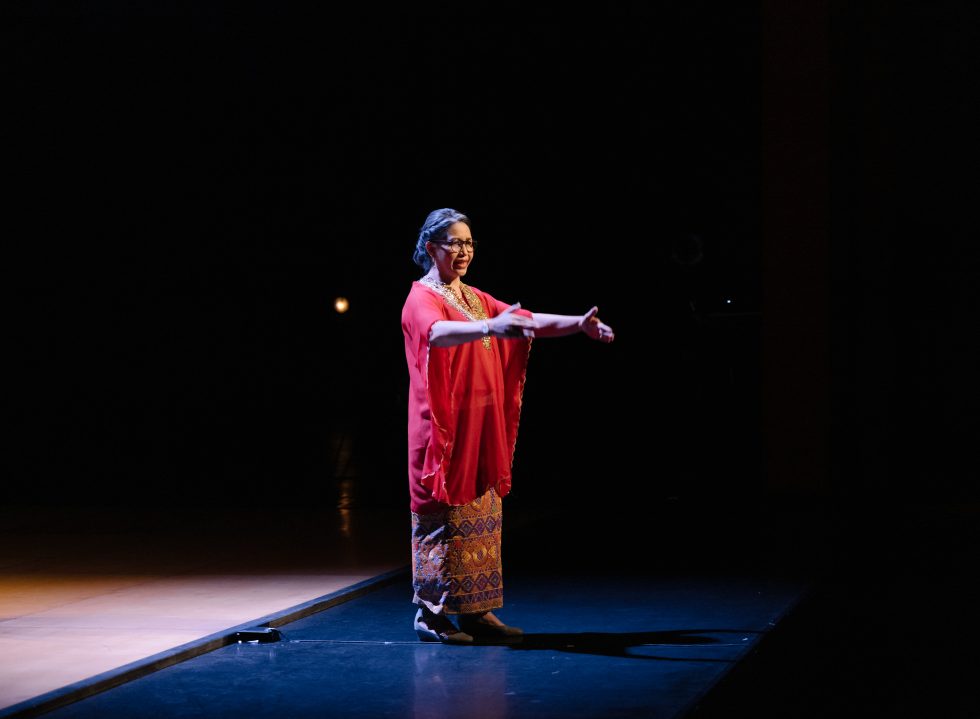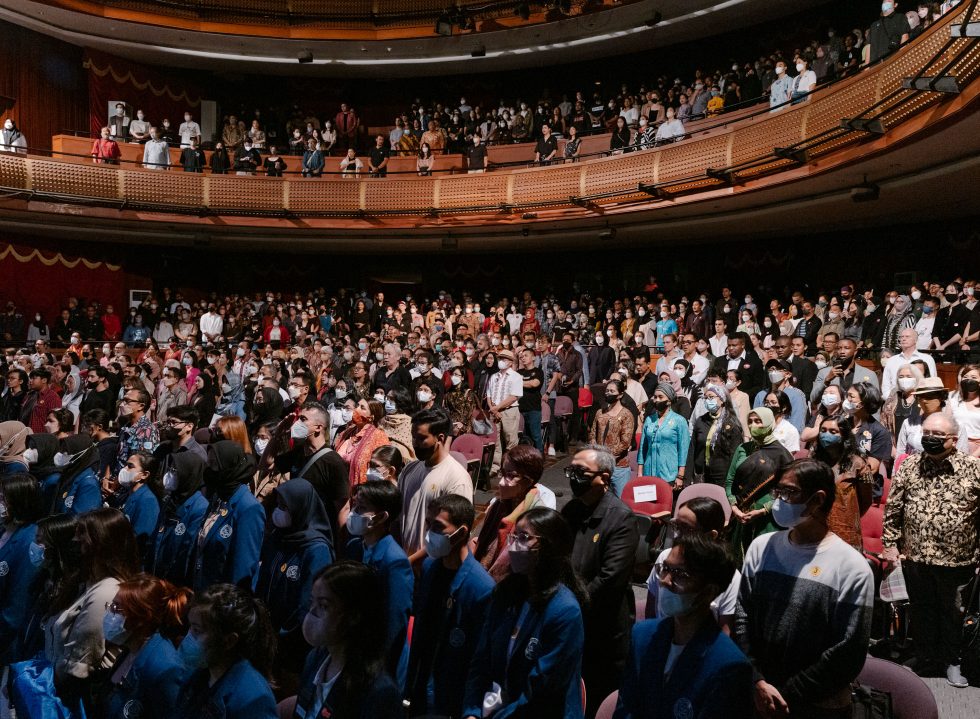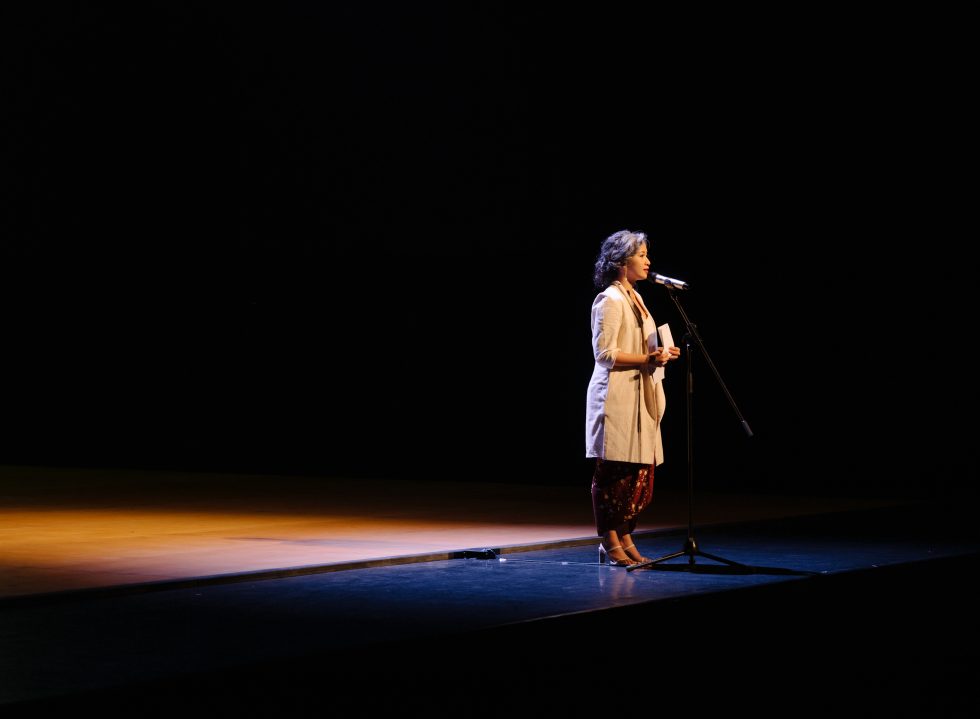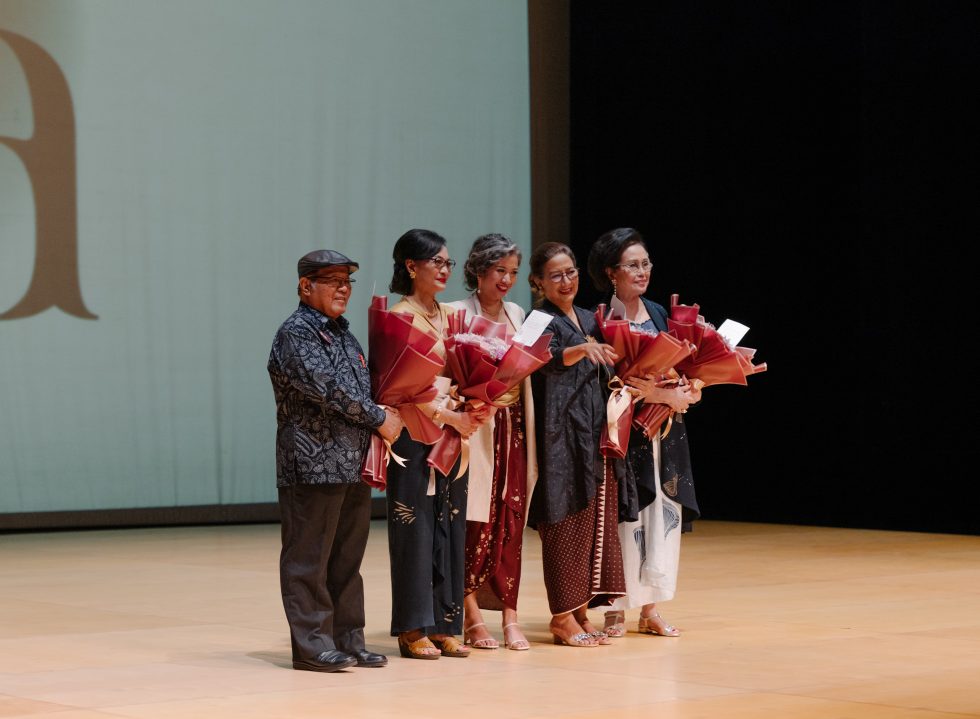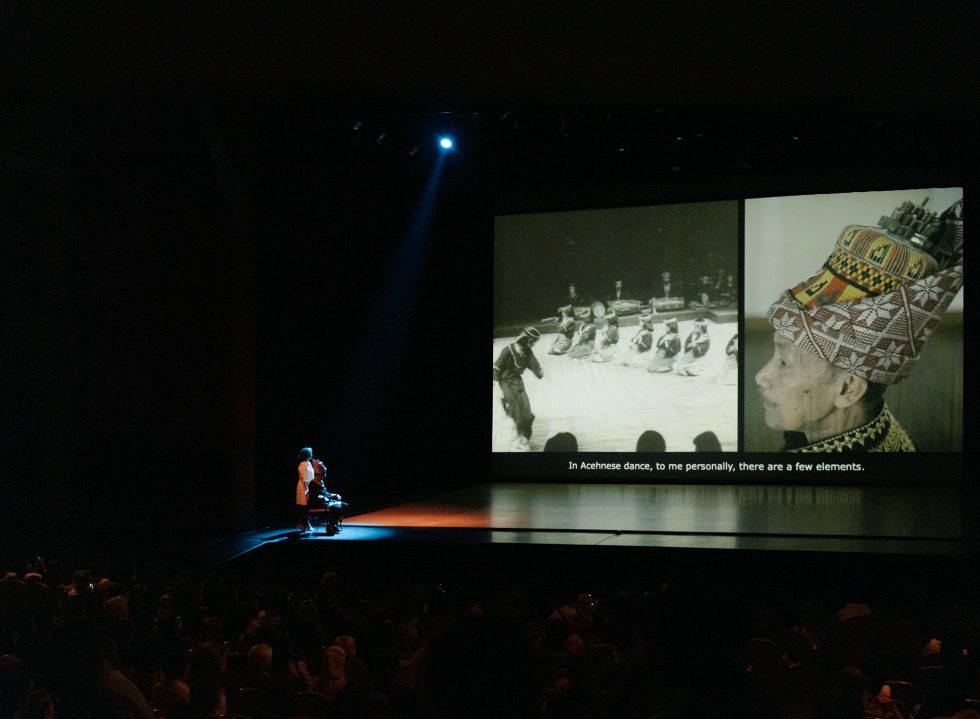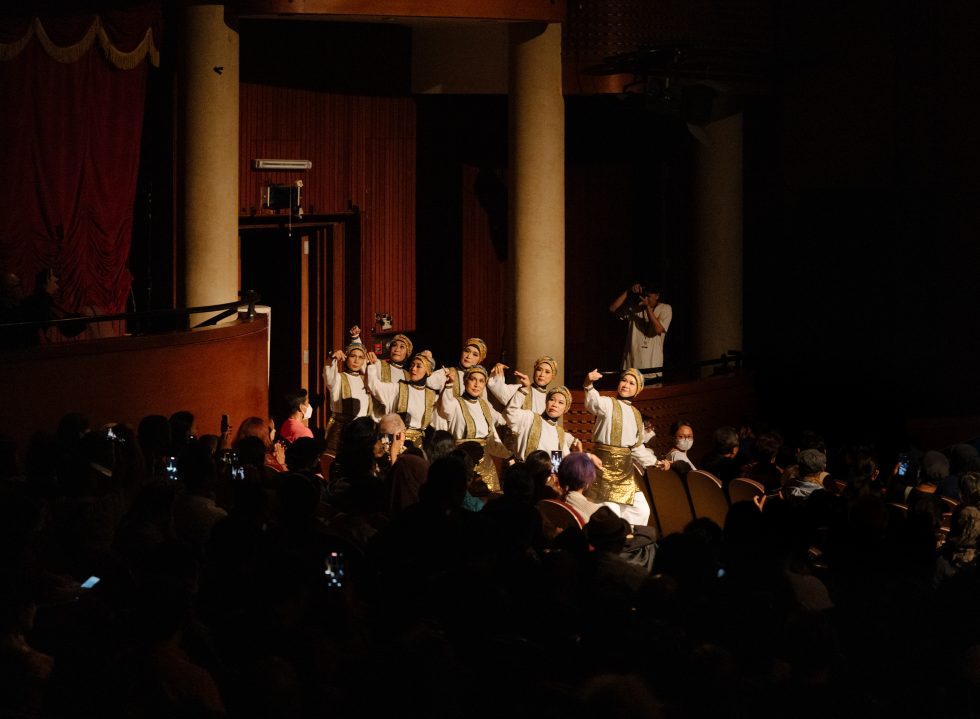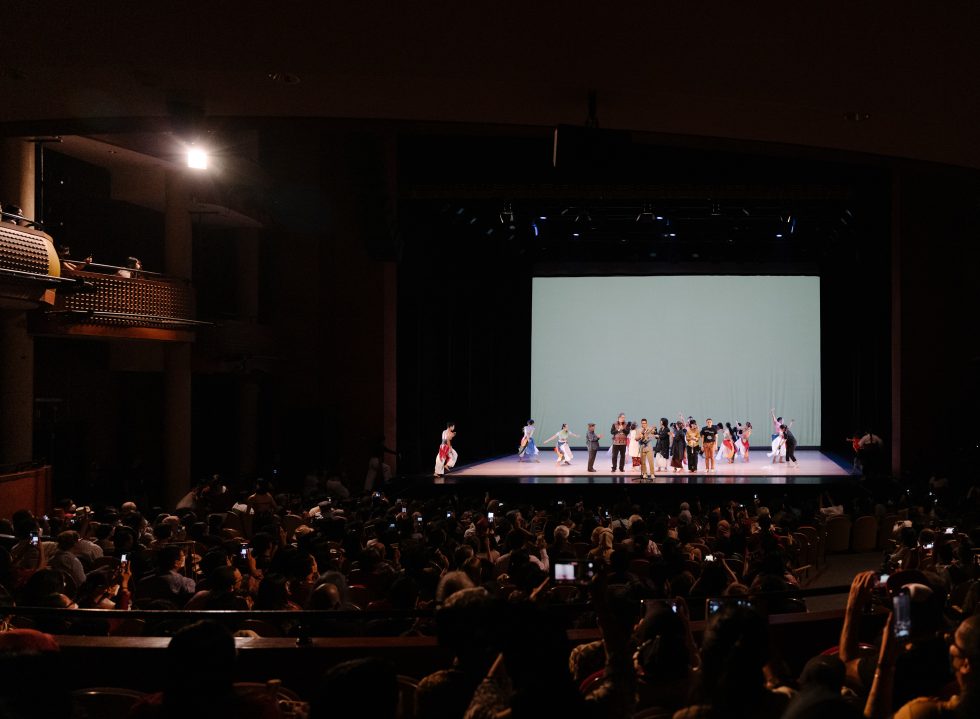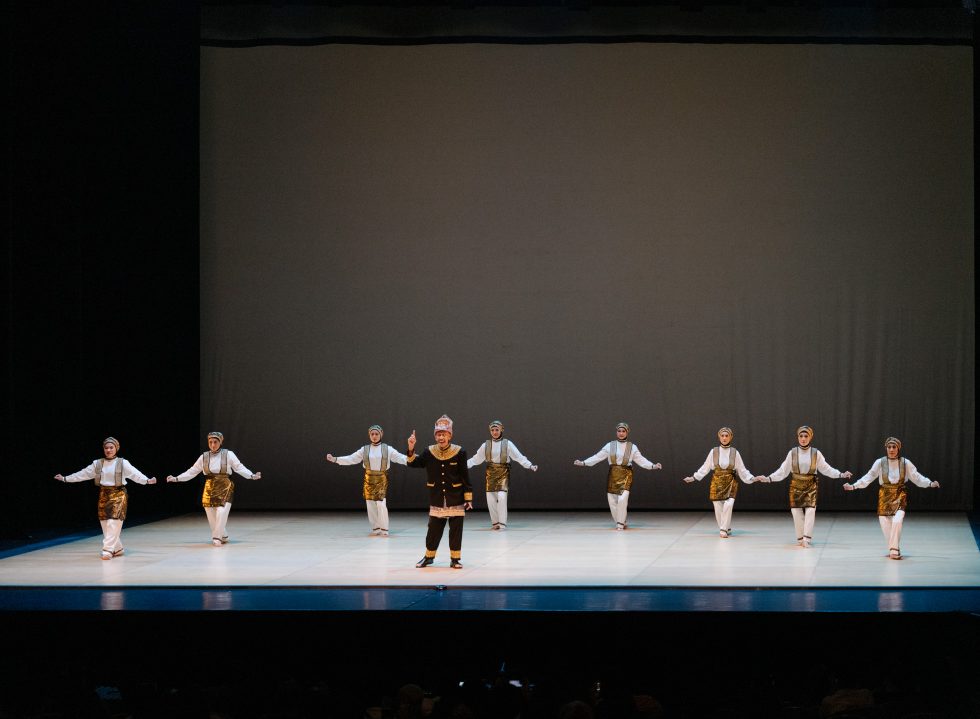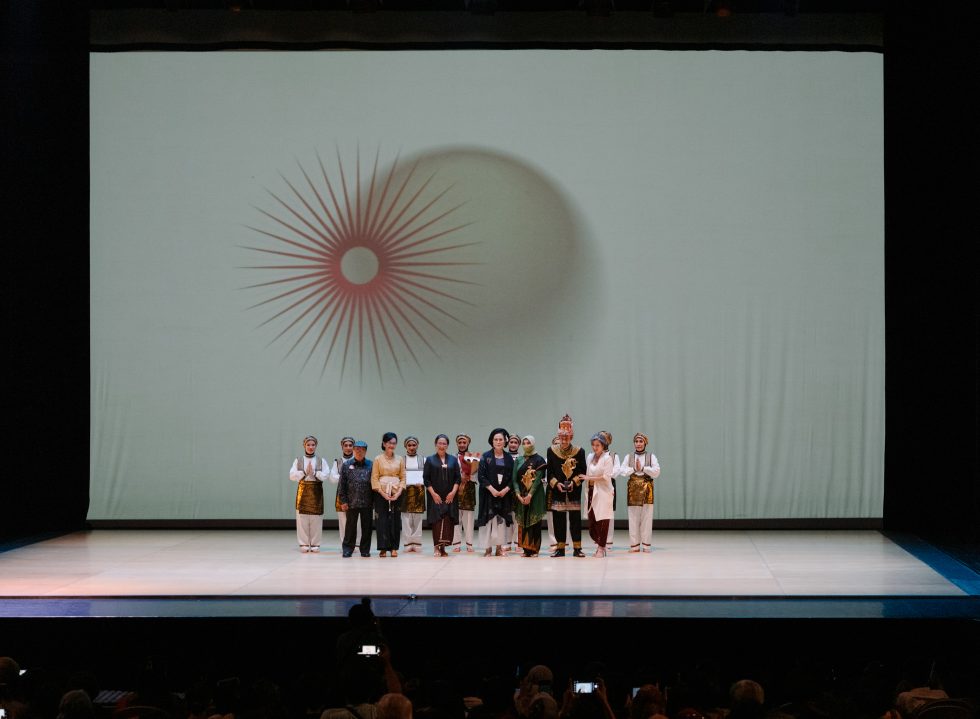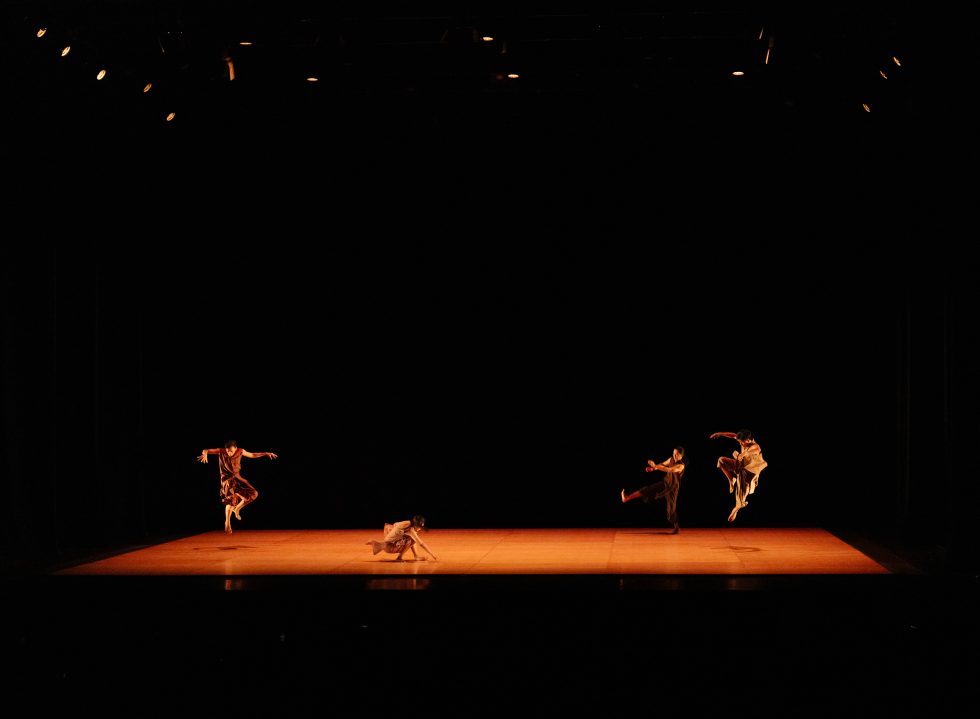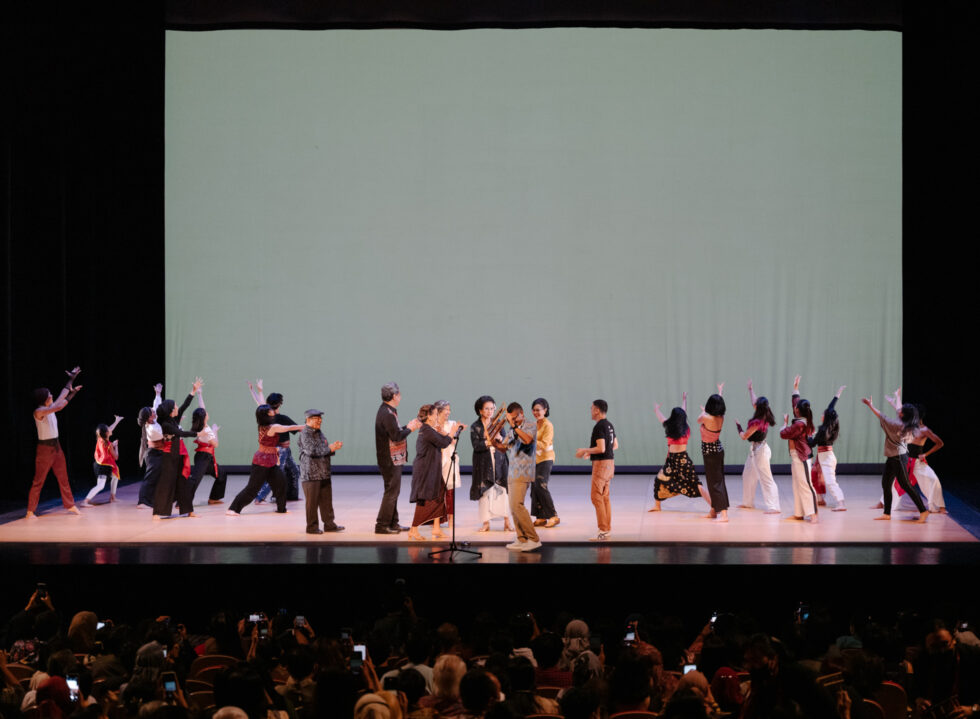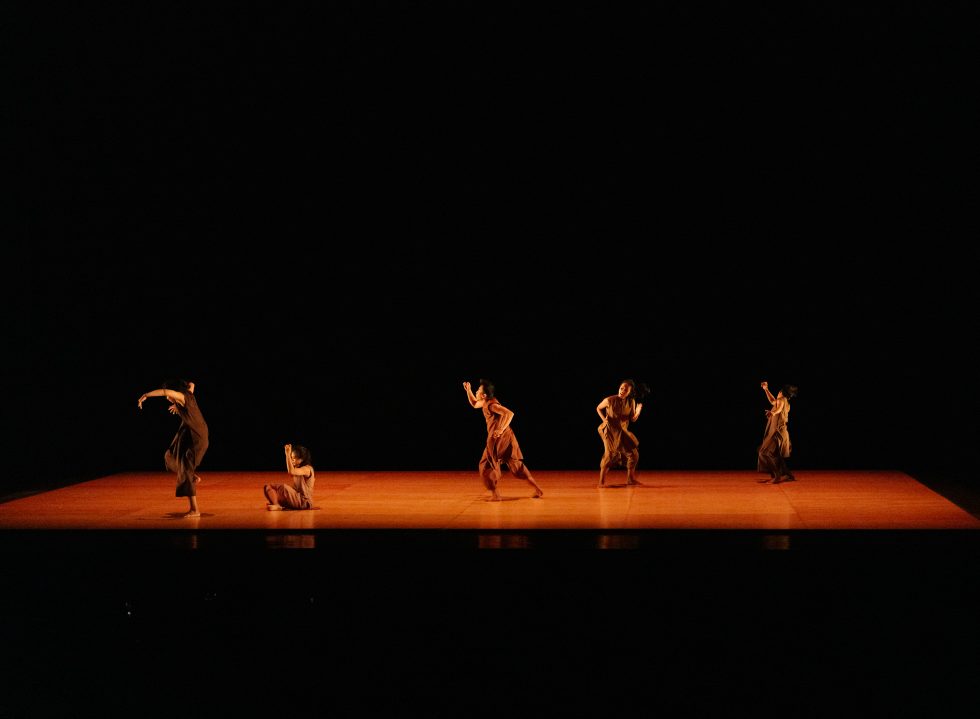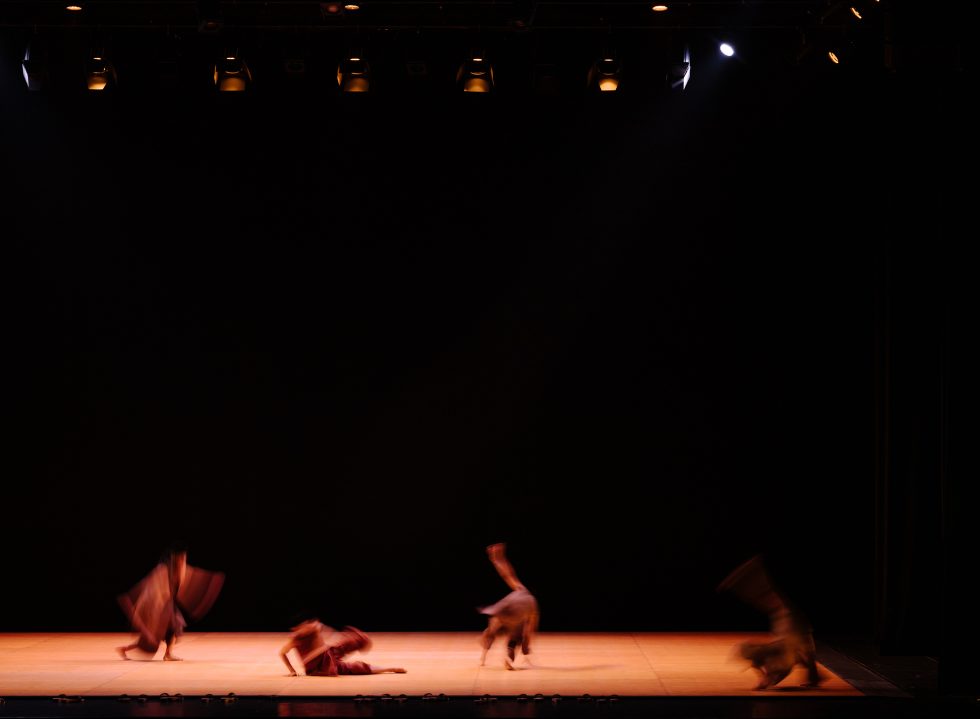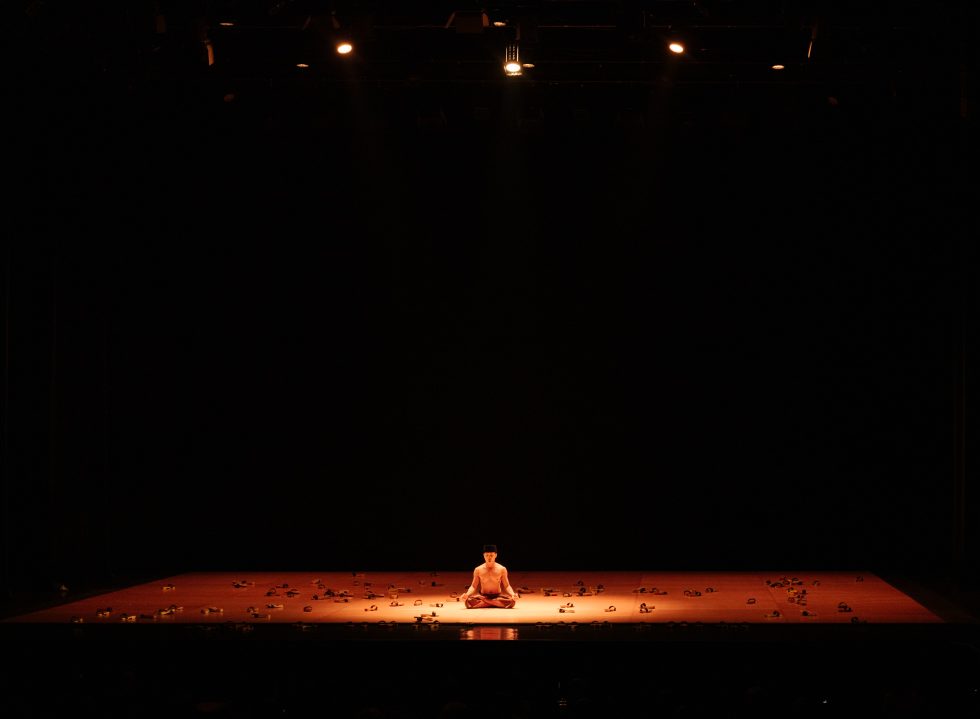The opening ceremony of the Indonesian Dance Festival 2022 (IDF) kicked off rapturously last Saturday night, October 22 at Taman Ismail Marzuki. Crowds gathered in a circle outside Teater Jakarta as they fixed their gaze on the opening act: members of Institut Kesenian Jakarta’s (IKJ) dance department, sitting and staring blankly in silence.
Garbed in colourful costumes, they slowly stood in unison and broke into a lively dance performance of “Jakarta Reframed”, a set inspired by Betawi’s ondel-ondel traditions. Their infectious energy continued onto the stage of Teater Besar, as dancers swayed through the crowds and guided them inside the building—just like that, the ceremony started while the audience was still rummaging through their seats.
Founded by Melina Surya Dewi, Maria Darmaningsih, Nungki Kusumasuti and Sal Murgiyanto in 1992, along with a few other dance figures who are affiliated with IKJ, the biennial international festival was initiated to become a space for young, aspiring Indonesian dancers and choreographers to grow and develop their craft, both at a national and international level. The 16th edition of IDF celebrates this long journey while passing the baton to the younger generation.
“This year’s festival signified not only 30 years of hard work and endeavour by our founders but also the spirit of regeneration,” said festival director, Ratri Anindyajati. “The process of working across generations was best felt through this festival. We learned from their knowledge of experience and they listened to us for current perspectives. There’s a balanced exchange between the older and younger generation.”
House curator, Linda Mayasari, also spoke about this edition’s theme ‘RASA: Beyond Bodies’, which was developed with an international team of curators and various research figures. “Rasa spoken in this context goes beyond emotions and senses. It’s a tool to see and make sense of the world. It’s no longer about the experience on the surface, but as a technology to create and to read aspects of our humanity.” She continued, “As a team, we agreed that this spirit of rasa should be embodied not only on stage but through the way we work as well.”
The opening ceremony pulsed with this spirit of rasa and a distinctly Indonesian dance experience, from the aforementioned ondel-ondel-inspired opening act to the traditional Acehnese dance performed as a tribute to Aceh-born dance maestros Marzuki Hasan and the late Nurdin Daud, who received the festival’s Lifetime Achievement Award. It was also a taste of what’s to be expected from IDF’s week-long festival, where various cultures and networks of the local and global contemporary dance scenes come together through performances, workshops, dance talks and masterclasses held across TIM and Komunitas Salihara Arts Centre.
It was the ceremony’s big finish, however, that had the whole theatre holding their breath with Hari Ghulur performing “SILO” for the first time. Along with his team of dancers, the notable choreographer from Madura explored the capacity of their bodies—flung, folded, twisted—as they danced to the eerie beats and haunting echoes. In a personal work that touches on the Islamic custom of tahlil, Hari meditates on his vertical relationship with the Holy one.
“It was about time for Hari Ghulur to receive this stage as seen from the scale of his extraordinary works. What he offers through “SILO” is not only an artistic quality but also a certain spiritual experience. [The performance] shows that you can find your spirituality anywhere and in any way,” raved Linda. Ratri added, “Hari is also one of the many dancers whose journey started with IDF and grew with us as well.”
The rest of the festival week, which runs until 28 October, features evening performances from Sherli Novalinda from Padang Panjang to Pichet Klunchun Dance Company from Thailand who will be closing the festival. Other performances, workshops and dance talks will be held in between, while guests can still catch the archive exhibition ‘The Spectres of Choreography: Reading Dancing Body, Identity, Space, Throughout IDF’s 30 Years Journey’ at the S.Sudjojono Gallery.
Click here to check out the rest of the festival’s scheduled performances and events.
